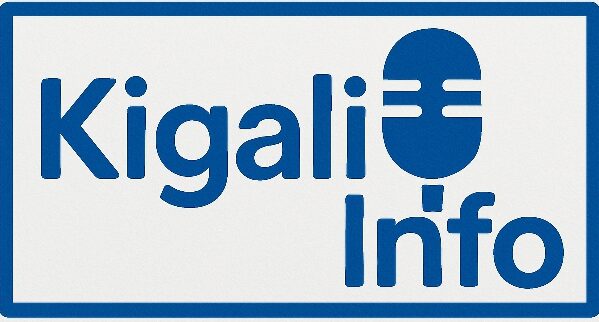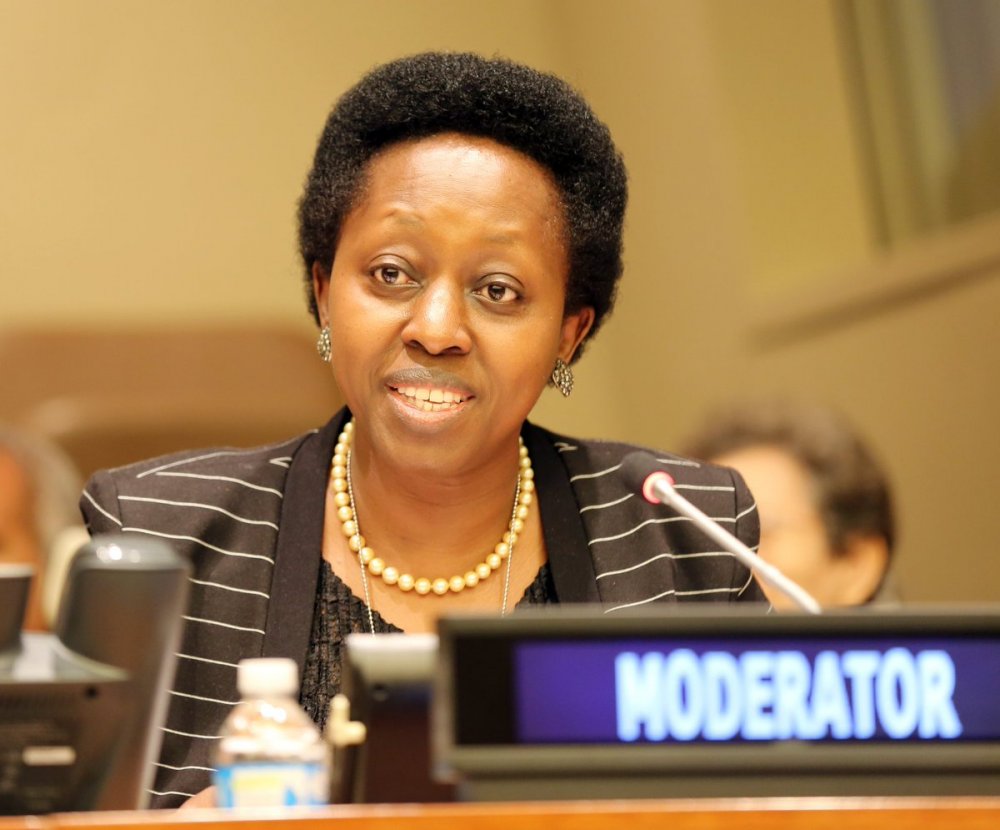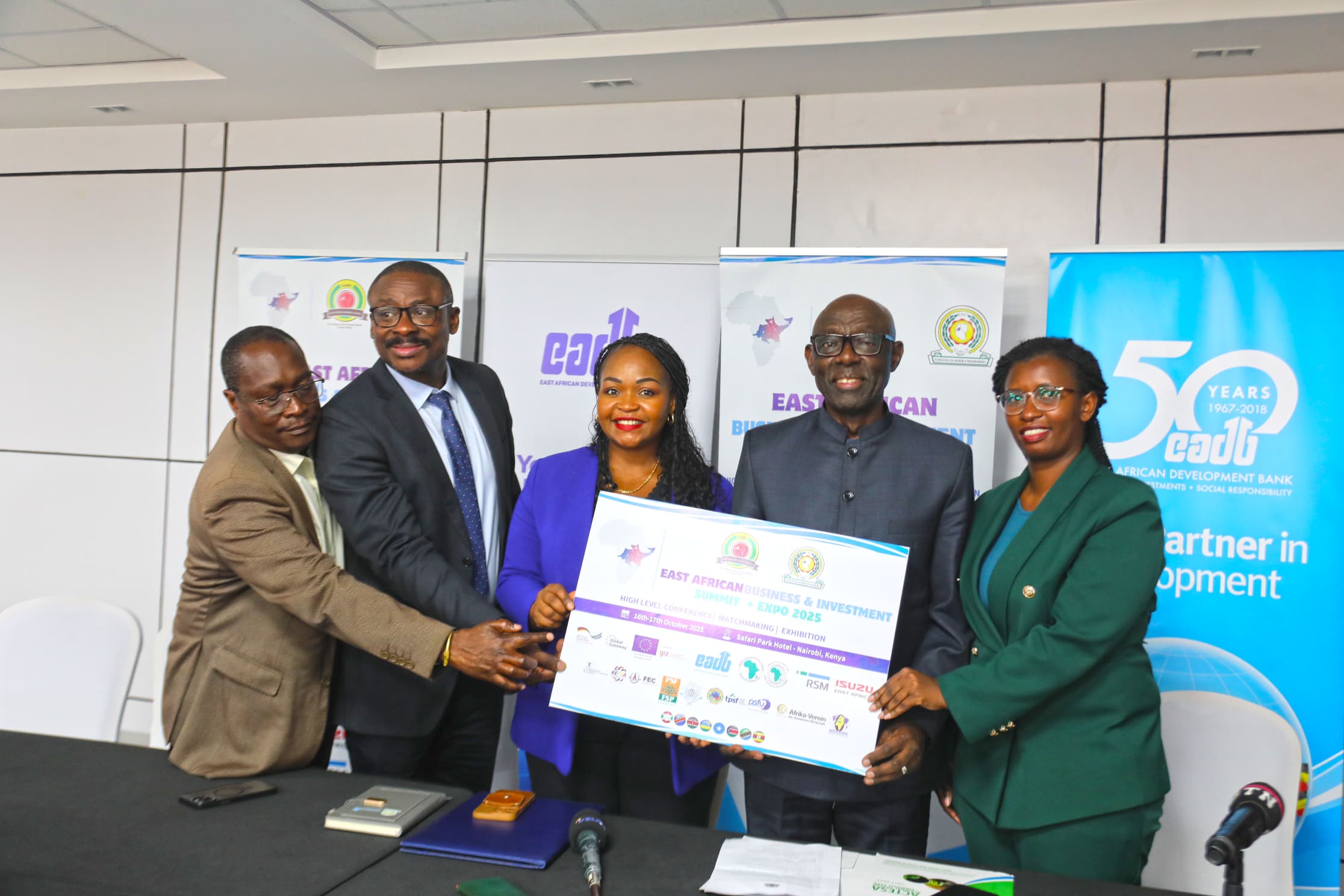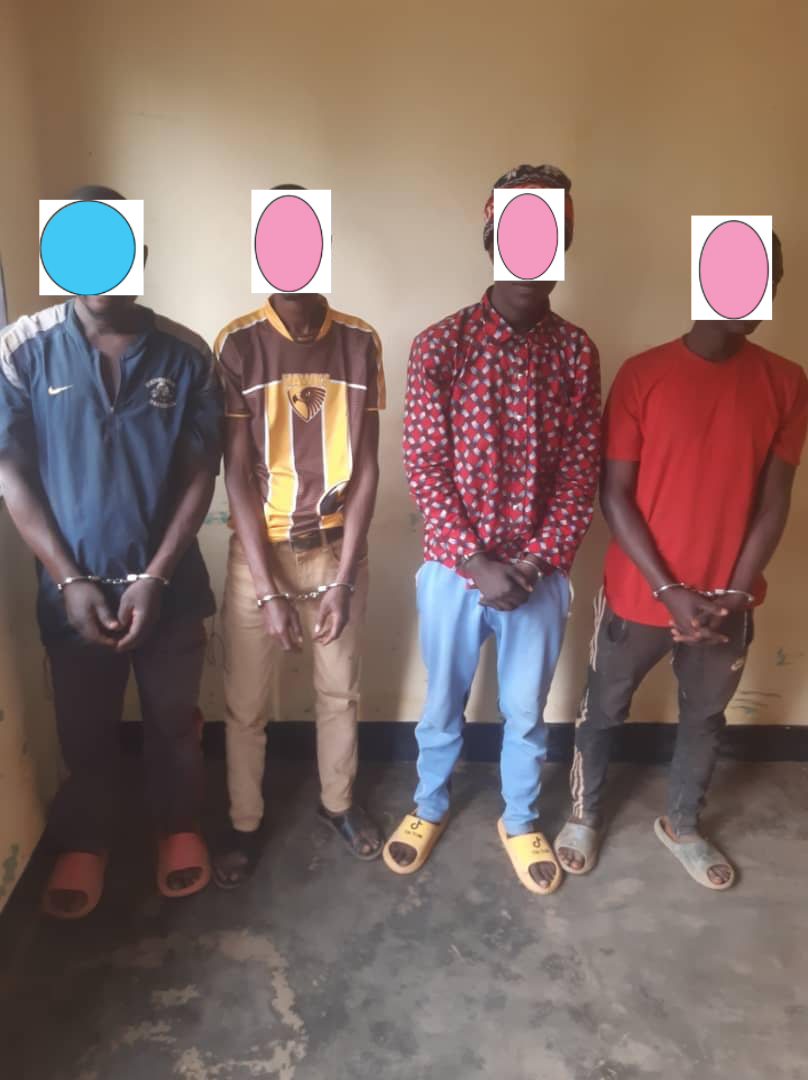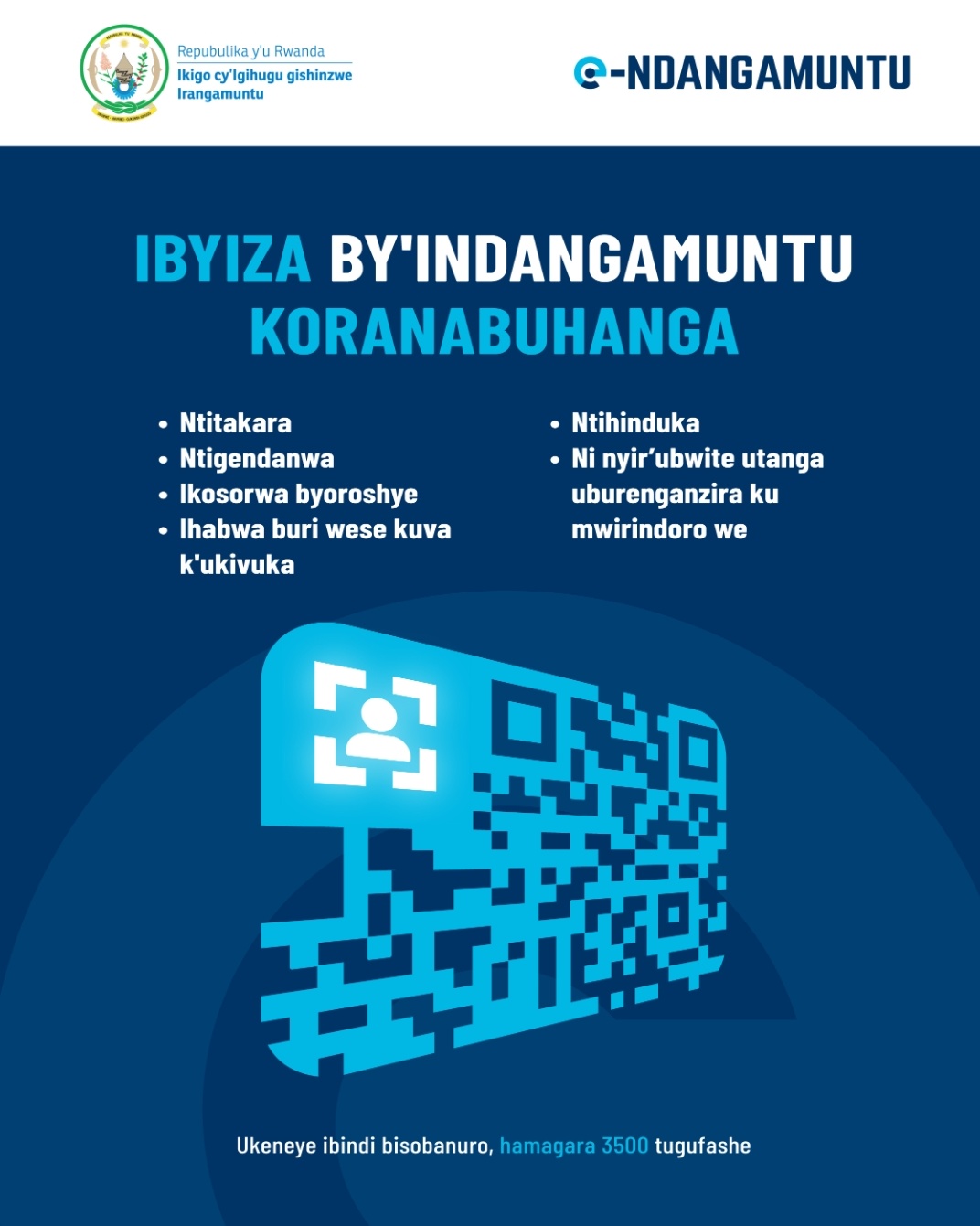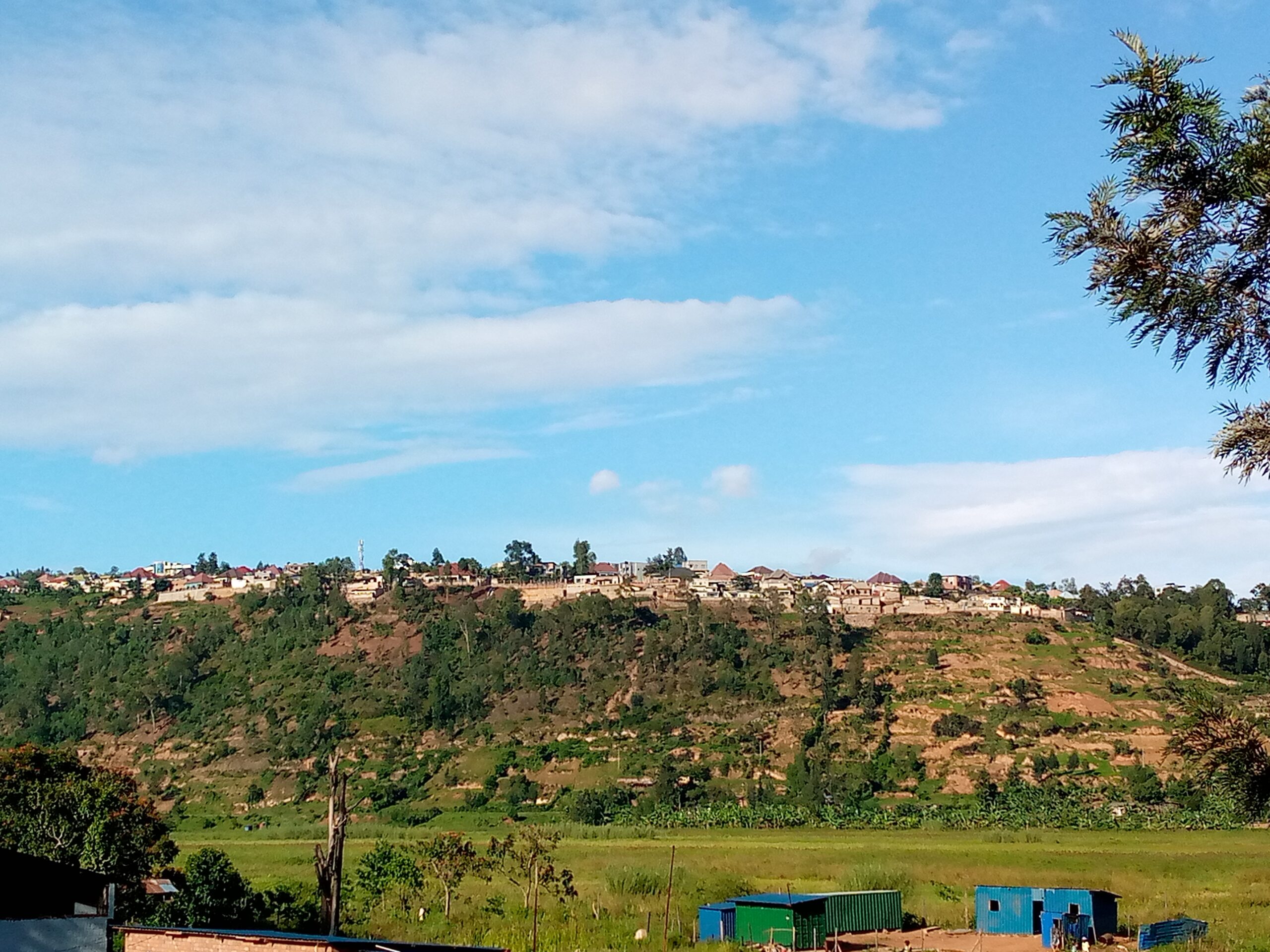
- Some of those relocated from high-risk zones (prone to landslides or floods) now complain about poor living conditions and claim that investors took their land for free
- The City of Kigali states that nearly 3,000 families were relocated from hazardous areas without compensation and will not receive new housing, because the land is still legally theirs
- The government claims that the urgent relocation without compensation was meant to save lives
Reasons Behind Relocations
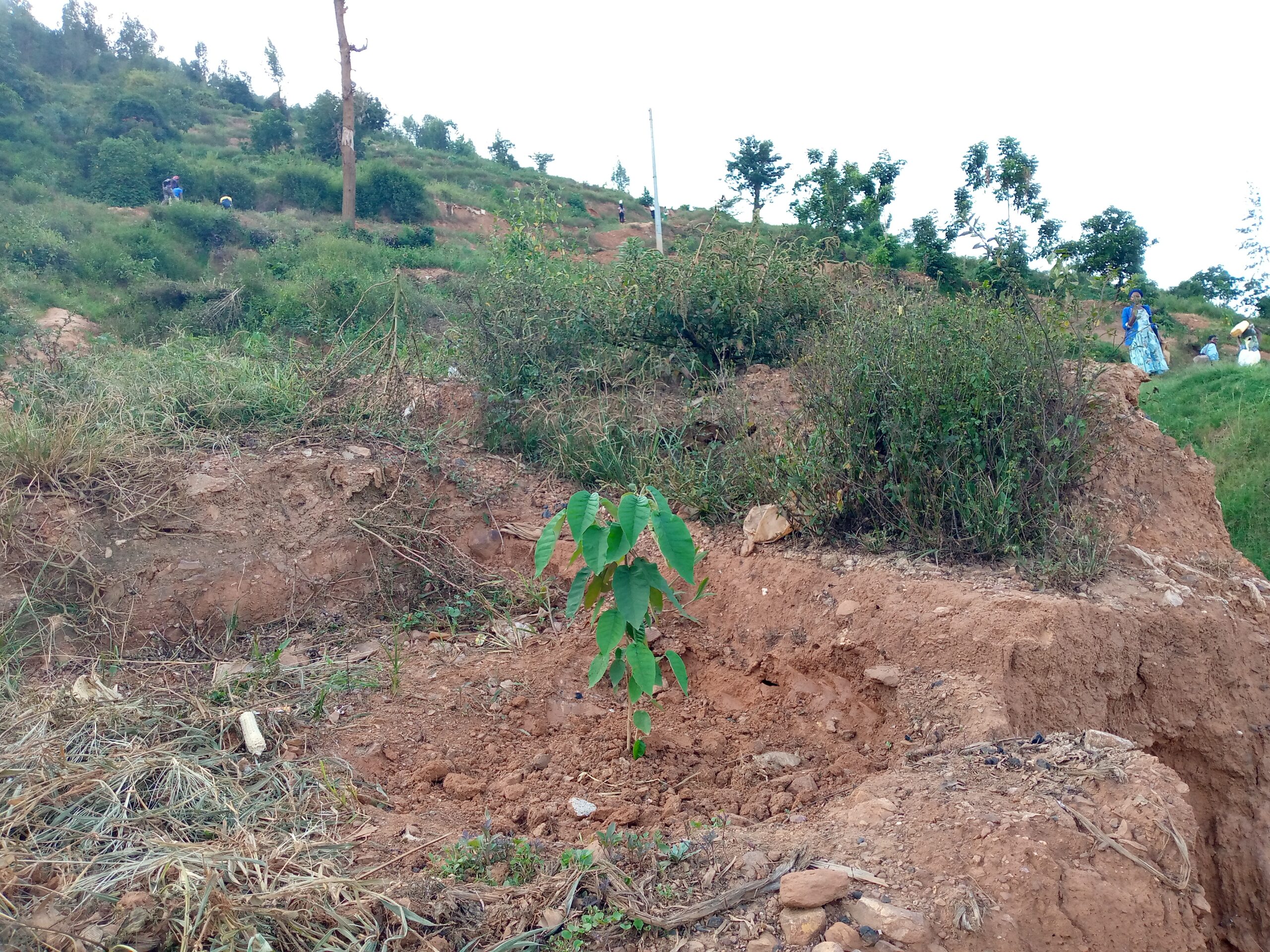
Complaints about the lack of compensation started in 2019 when residents living near Kigali’s wetlands were relocated to make way for tourism projects.
Some were resettled in villages in Karama and Kanyinya (Nyarugenge District), Gikomero and Rutunga (Gasabo District), and Busanza (Kicukiro District), while others were scattered without clear relocation plans.
In May 2023, after floods and landslides claimed the lives of over 135 people in the Western, Southern, and Northern provinces, the Government cited disaster prevention as the reason for reallocating land—effectively benefiting investors, according to Jean Bosco Nizeyimana (not his real name), a former resident of Gatsata.
Nizeyimana cites an example of homes demolished in Nyamabuye Cell, Gatsata Sector (Gasabo District), an area now occupied by a cooperative named Icyerekezo, which consists of garages and businesses.
He explains that this cooperative, initially composed of mechanics who used to work in the Nyabugogo wetland, relocated uphill but soon found the land insufficient for their needs.
He alleges that its representatives, whose origins are unclear, would approach landowners, offer a sum of money, then disappear without further discussion.
For instance, Martine Mukanyangezi (now deceased) was offered RWF 120 million instead of the RWF 200 million she requested. Similarly, another resident, Perpetue, was offered RWF 150 million for her property.
Nizeyimana claims that after a retaining wall collapsed on people in Gatsata (similar to a previous incident in Gisozi), the cooperative seized the opportunity to take that land for free, which will be used to expand its operations and becoming erosion forest fence to protect the eco-park wetland of Nyabugogo.
“They hurried to demolish the areas they wanted because, as you can see, our land is valuable. If they were truly relocating people due to disasters, they would have started in places like Rubonobono, where the slopes exceed 90%, instead of our area, where slopes are only about 30%,” he said.
According to him, investors used local authorities to evict residents, and their land has since been converted into parks and green spaces.
Forced Evictions Without Warning
In May 2023, when authorities evacuated residents, the then-Executive Secretary of Gisozi Sector (Gasabo District) reportedly told them she had no choice but to comply or risk losing her job, stating, “I am not Jesus.”
Some residents of Byimana Village, Musezero Cell, were given just 48 hours to vacate before their houses were demolished.
The next day, sector officials distributed compensation payments: Frw 90,000 per household for homeowners and Frw 30,000 per household for tenants.
By the following day, some houses had already been demolished, with residents forced out abruptly.
The affected plots were officially designated as residential areas according to the Kigali City Master Plan. However, authorities argued that only structurally weak houses were being demolished, despite some remaining untouched in the same zone.
Relocation efforts later expanded across Kigali, affecting residents near wetlands, valleys, and some hillside settlements.
Jeannette Mukashyaka, 37, moved her four children to a friend’s home before the demolition to spare them from witnessing it. When they returned, they found their home reduced to rubble, their belongings left in an open place for days, and no alternative shelter available.
Local authorities had promised to rebuild modern houses on the same plots and provide temporary rent assistance, but the affected families never received further support.
Where Did the Funds Go?
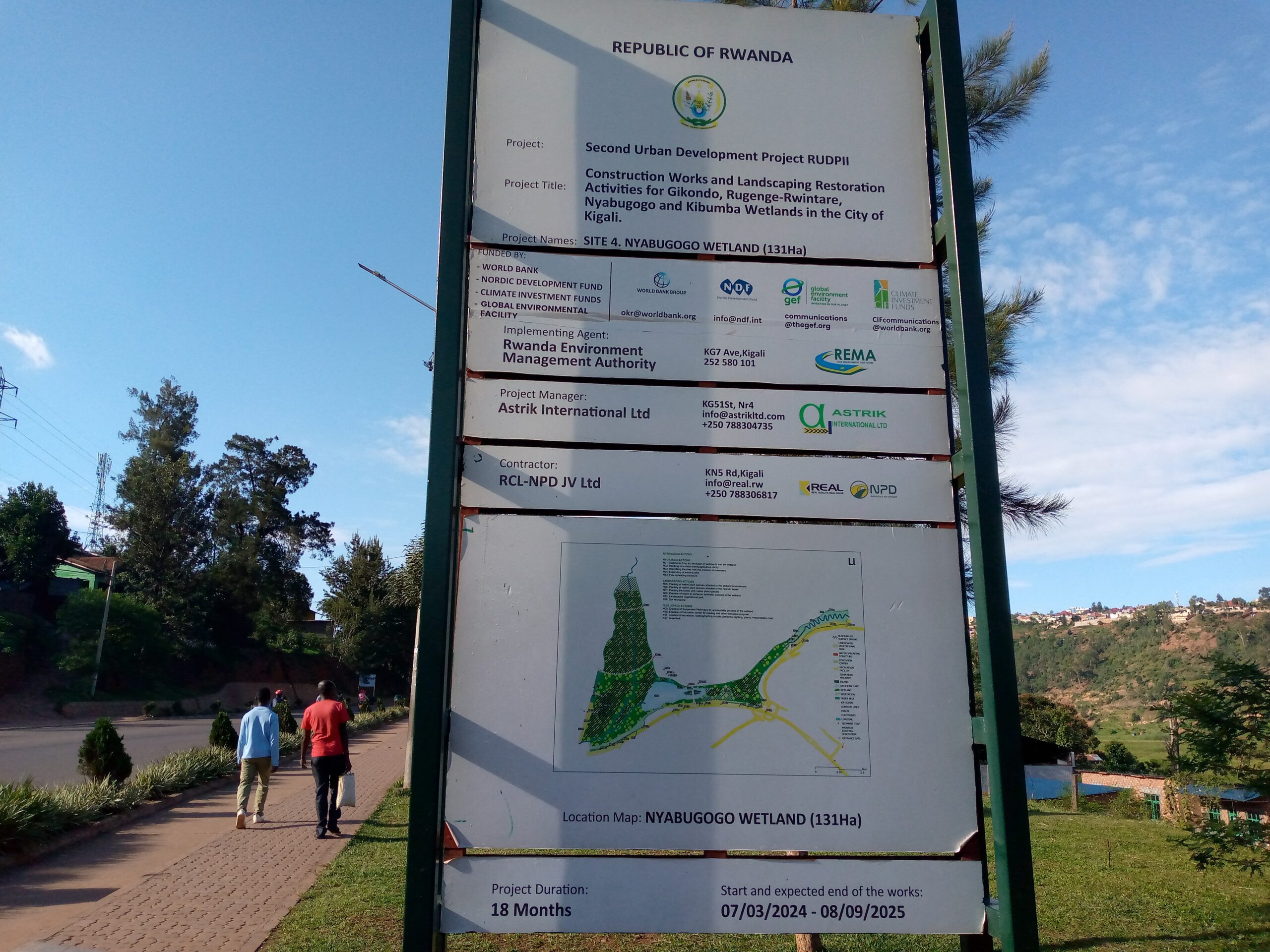
International donors, including the World Bank, Nordic Development Fund, Climate Investment Fund, and Global Environmental Facility, had provided over $170 million (Frw 238 billion) to restore Kigali’s wetlands into eco-tourism parks.
However, displaced residents received only minimal compensation described as “inticantikize” (a small token of support).
According to a 2024 Ministry of Emergency Management (MINEMA) report, 3,875 households were relocated nationwide during the rainy season and given a total of Frw 140,578,000—equivalent to just Frw 36,278 per household.
Consequences of Forced Evictions
Children Left their Home
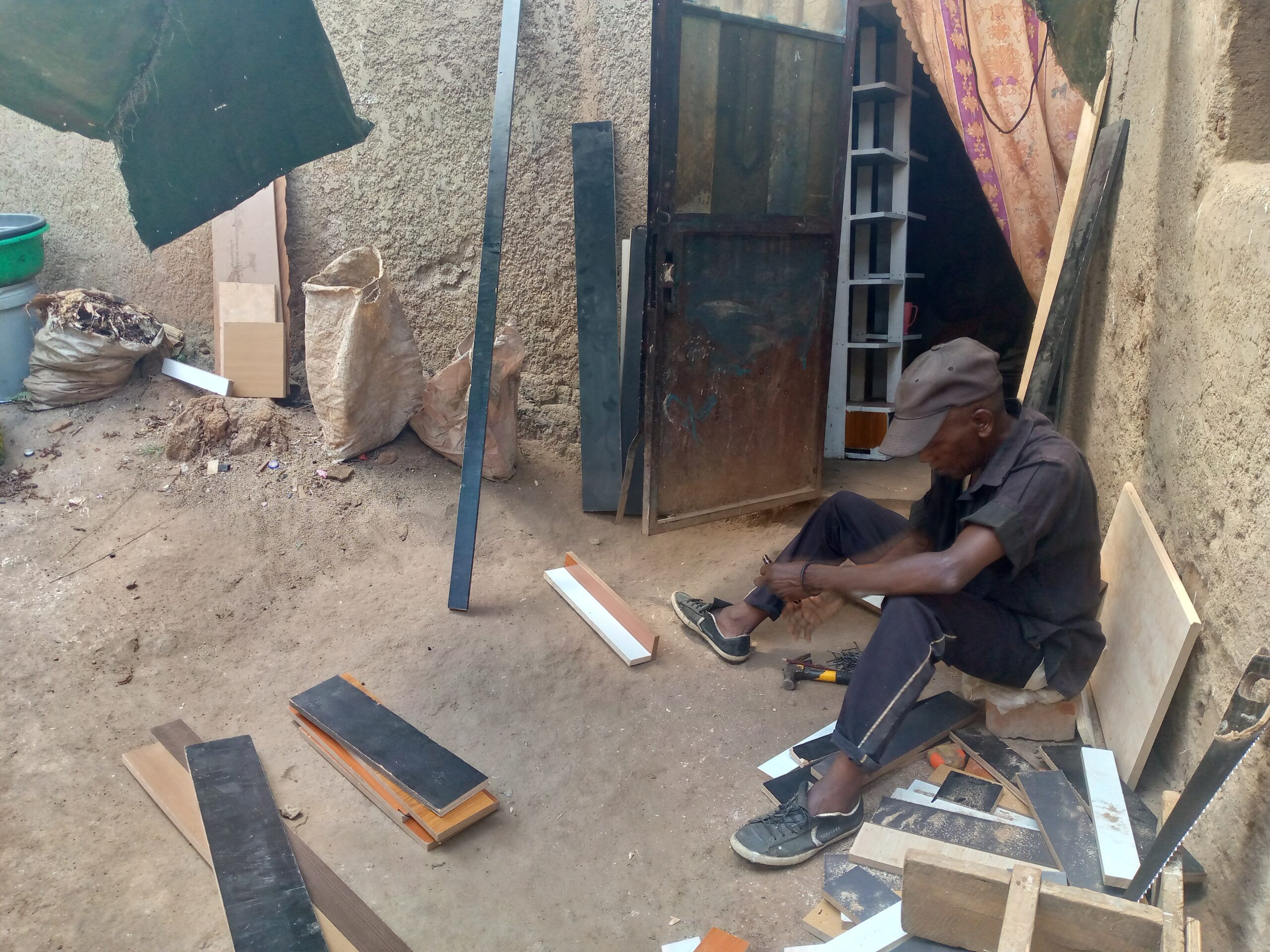
Rutaganira Tharcisse, 72, lost track of two of his four children after their house in Byimana, Gisozi, was demolished along with 14 rental units that generated over Frw 250,000 per month.
Now, he and his wife survive by selling small wooden stools and shelves, which they buy for Frw 5,000 at Gisozi carpentry market, making barely Frw 2,000 in profit per day.
Before eviction, they could afford two meals a day, but now they often go without food. “My wife used to weigh over 60kg, but now she is barely 30kg—she is starving,” he laments.
Recently, he nearly died from illness because they could no longer afford health insurance (mituelle de santé).
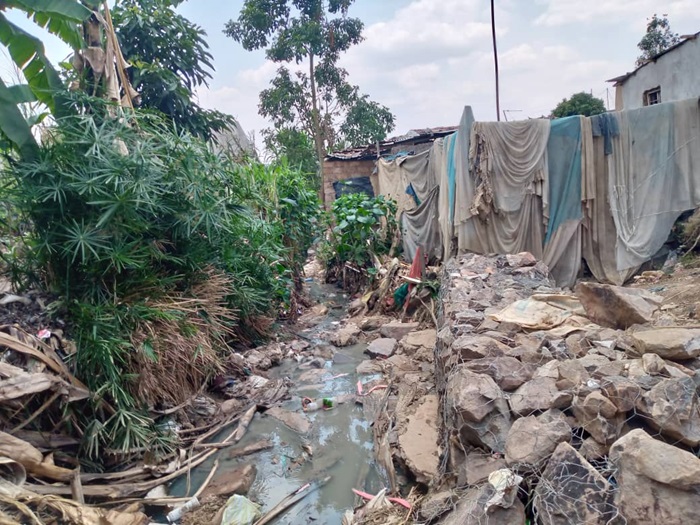
Starvation and Trauma
On Thursday, January 23, 2025, Bimenyimana Yves, 48, a casual construction worker, returned home at 8 PM to find his children roasting maize on a stove from the ruins of their former home. Without a good Samaritan’s help, each child would have gone to bed with just one half-ripe cob of maize.
Bimenyimana’s wife had gone to visit relatives, possibly securing a meal there, but the father, who expected to be paid that day, came back empty-handed because payments were delayed.
When a journalist asked about his experience, he suddenly collapsed in silence.
His 15-year-old daughter, Kevine Uwase, explained that this was not the first time they had slept hungry. Whenever their father failed to find work, they had no food.
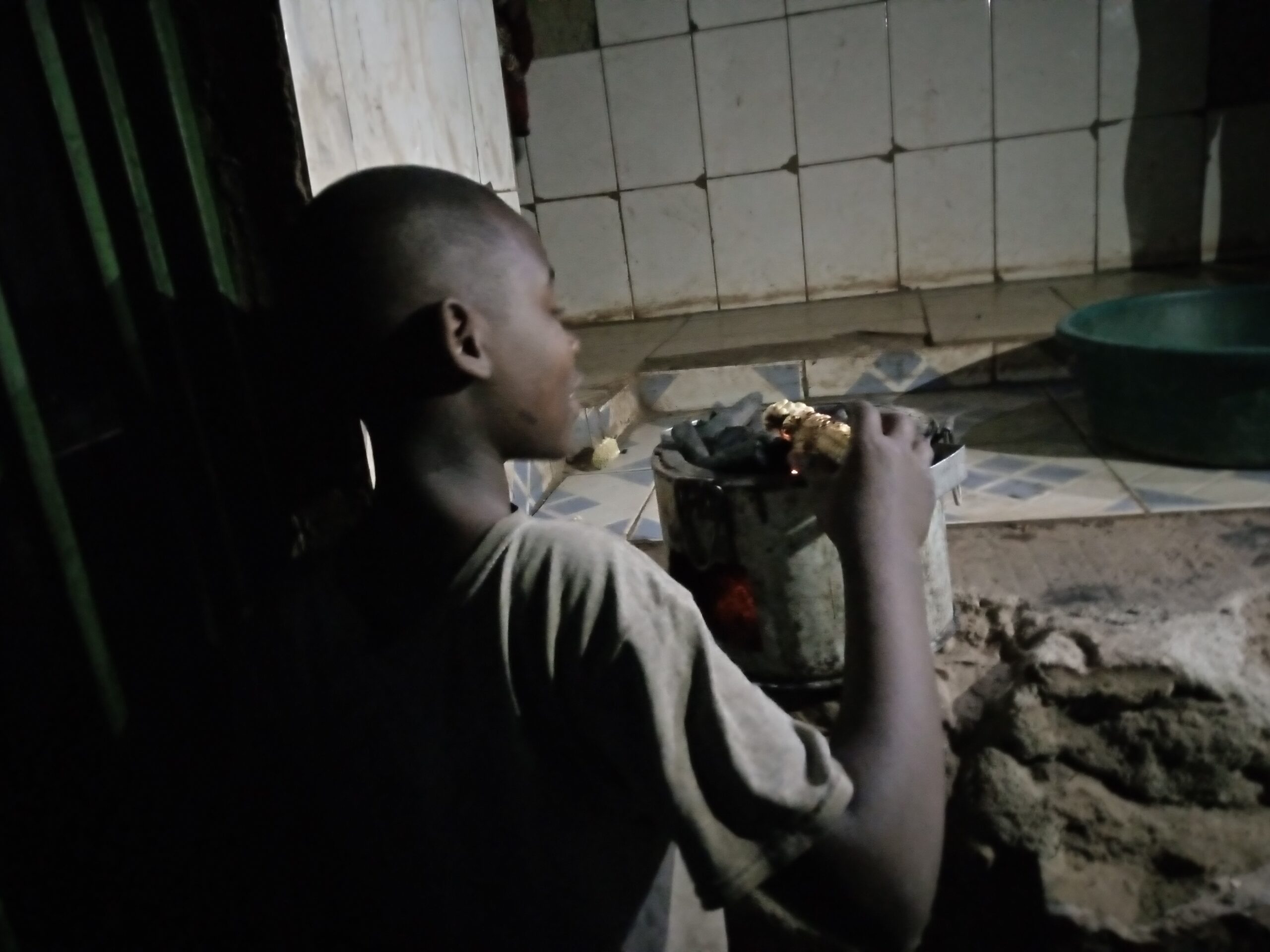
Kigali Mayor Promises Change
On February 9, 2025, Kigali City Mayor Samuel Dusengiyumva, after being elected to lead the RPF-Inkotanyi party in Kigali for the next five years, pledged to address trauma among citizens and ensure public participation in decision-making.
“We will work to reduce isolation and trauma. Residents must have a say in decisions affecting them,” he told journalists.
Children Dropping Out of School
Among those who were displaced in Gisozi, there is Kayitesi Solange, a widow left with two sons in 2017.
When Kayitesi’s home was demolished on May 16, 2023, her eldest son, Gihozo Didier (17 years old), had to drop out of school to help his mother earn a living.
The family now rents a single-room house with a small living area for 20,000 Rwandan Francs (Frw) per month. The house is in poor condition, lacking cement, and has been frequently damaged by rain.
Gihozo sometimes goes to Gakiriro in Gisozi to dismantle wooden planks for money, while other times he does casual jobs in restaurants, such as peeling potatoes.
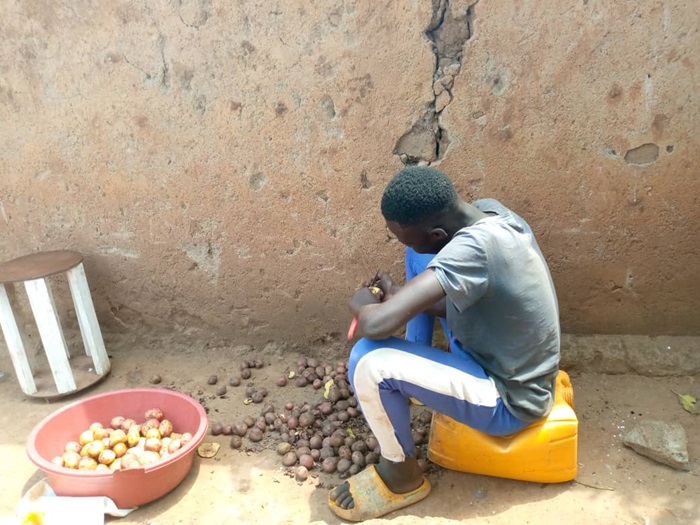
The head of Kariyeri Primary School in Gisozi, Alexandre Hakuzimana, stated that when over 700 families were relocated from Kanyinya village in Ruhango cell in September 2023, more than 400 students from his school began missing classes.
Hakuzimana said: “Some parents came to request transfer documents for their children, while others moved without notice. Some children were sent back from their new schools due to a lack of necessary documents.”
In a meeting with Senators on Wednesday, February 19, 2025, the Minister of Education, Joseph Nsengimana, revealed that 140,000 school-aged children in Rwanda were out of school. The Government has launched a program to reintegrate them into the education system.
Informal Business and Prostitution
Returning to Kayitesi Solange, Gihozo’s mother, she lamented: “Among the displaced families, some parents are now selling avocados on the streets, while others have turned to prostitution, spending nights on the roadside waiting for clients. Some women sell their bodies for as little as 1,000 Frw just to survive. If only the Government had provided us with capital to start small businesses!”
Among those engaged in prostitution is Mukashema Speciose (not her real name), a 37-year-old woman with five children. Her husband abandoned her after their house was demolished, though their marriage was already troubled.
One of her daughters, who had been studying at GS Sainte Famille, was sent in Nyamasheke for further studies but couldn’t afford to go. As a result, she stays home, waiting for men who visit her for money in exchange for sexual favors.
Mukashema, while selling mangoes on a street corner, shared her distress: “My daughter hasn’t gotten pregnant yet—God is still protecting her—but given our situation, it’s just a matter of time. Even I, as an adult, face pressure. Look at these mangoes; they won’t even earn me 1,000 Frw. If a man offers me money, how can I refuse?”
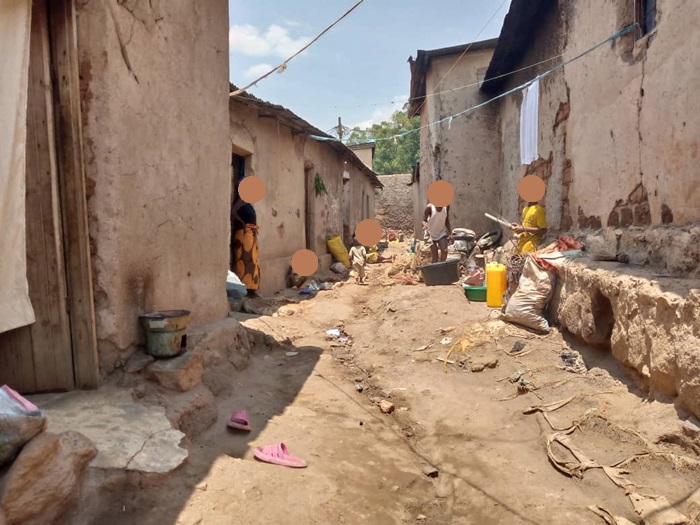
On the other side of Gisozi in Gatsata, on the slopes of Jali hill, many families were evicted in September 2023. Among them was Mukamazimpaka Anastasie, a 64-year-old widow who had lived in Mpakabavu village, Nyamabuye cell, since 1982.
Before her house was demolished, she earned over 80,000 Frw per month from rental income and lived without paying rent. Now, she has relocated to Hanika village below her previous home, where she struggles to rebuild her life. To keep herself occupied, she sells candies on a small street stall.
Some of her former neighbors now wander around Nyabugogo bus station, selling goods illegally, a business that Kigali City Council deems unsafe and disruptive.
Mukamazimpaka made these remarks in November 2024, as nearby, Jean Ngendahayo, a 68-year-old man, was being evicted alongside his family. Their former neighbor had lost two children when a poorly constructed retaining wall collapsed on them.
The displaced residents argue that the demolitions were unfairly blamed on their settlements being in high-risk zones, while in reality, it is an individual house owner failure to ensure proper construction standards.
Ngendahayo, who has a wife and five children—some in university and others in secondary school—used to afford their tuition. However, since his house and rental properties (which generated 160,000 Frw per month) were demolished, his children have had to drop out. The family also lost income from a water-selling business they once ran.
Job Loss and Long Commutes
Some evicted families moved far from their workplaces. Among them is Samuel Sibomana, who relocated from Gatsata to a rented house on Jali hill. Many of his family members and neighbors struggle to commute daily to work in Nyabugogo.
Sibomana explained: “The path we take home in the evening passes through a forest and abandoned houses. It’s dangerous. If you don’t walk in a group, you risk being robbed or even killed. Some people are now too afraid to commute.”
Bank Loans and Debt Issues
Muhire Ernest, a former resident of Byimana village, had taken a loan of over 4 million Frw from Gisozi Umurenge SACCO, using his now-demolished house as collateral.
Gasabo district’s SACCO management stated that those who failed to explain their repayment difficulties had been blacklisted in the Credit Reference Bureau (CRB), a system used to track loan defaulters.
Fulgence Nkeragutabara, head of Gasabo’s SACCOs, said that some evictees from Gisozi owe 9 million Frw and have been granted flexible repayment plans. He added that an ongoing assessment is tracking individuals and lending groups that defaulted due to relocation.
Besides unpaid loans, displaced individuals have not reviewed their land tax obligations. However, the Rwanda Revenue Authority has extended leniency in some cases.
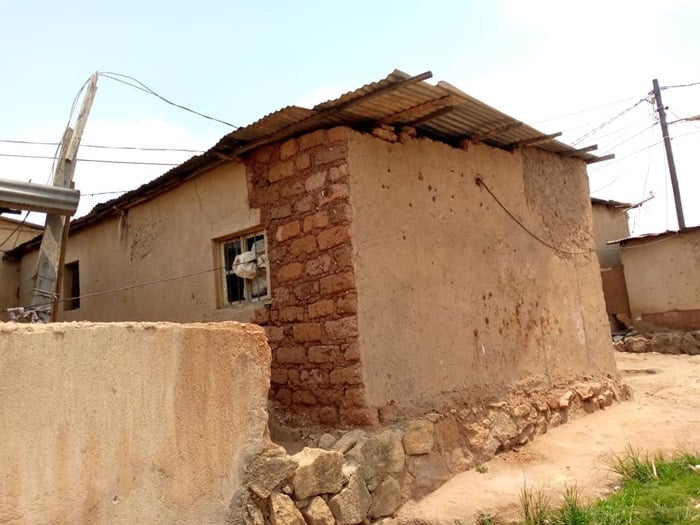
Residents from Gisozi, Gatsata, Nduba, Remera (Gasabo district), Kigarama (Kicukiro district), and Gitega (Nyarugenge district) have sought Government intervention after being left homeless. However, their pleas have largely gone unanswered.
The Kigali City Council reported that between May 2023 and January 10, 2025, a total of 9,889 families had been relocated. Among them, 2,865 had owned homes, while 7,024 had been renting.
International Guidelines on Disaster-Related Displacement
The International Organization for Migration (IOM) and the U.S. Federal Emergency Management Agency (FEMA) state that legal frameworks should guide population relocations from high-risk areas.
Before eviction, government agencies, including urban planners and disaster management experts, conduct risk assessments. A formal government declaration is then issued, classifying the area as hazardous.
Public meetings are held to explain the reasons for relocation, how it will be conducted, what compensation will be provided, and what legal and logistical support the government will offer.
Depending on national laws, compensation may include financial aid, new housing in safer locations, and temporary shelters.
Sometimes, residents resist relocation, arguing that compensation is insufficient, leading to lawsuits or protests. In such cases, governments may use court orders and police enforcement to carry out evictions, especially in severe disaster-prone areas.
After relocation, governments provide support such as housing, employment programs, and livelihood assistance to help displaced families rebuild their lives.
Parliament was called to intervene
In November 2024, the Rwanda Human Rights Organizations Platform (CLADHO) stated that it had written to the Parliament and the City of Kigali more than twice since May 24, 2023, demanding that the relocation of residents from high-risk zones be conducted with respect for human rights.
CLADHO requested a review of Article 13 of the Constitution, which states that every person is sacred and inviolable and that the government must respect, protect, and defend them.
Article 18, which defines the family as the natural foundation of Rwandan society, and Article 34, which guarantees individuals the right to property and protects it from unlawful seizure, were also cited.
CLADHO argues that these rights were ignored because people were forcibly relocated without alternative housing, leaving young children vulnerable to negative impacts.
Dr. Safari Emmanuel, the Executive Secretary of CLADHO, stated that the lack of preparation for the relocation caused trauma and disrupted children’s education.
“The Parliament was elected, and MPs are touring the country. We want them to visit affected areas, ensure people’s rights are respected, and address their concerns,” Dr. Safari said.
Reactions of the Parliament
On Sunday, February 9, 2025, Musa Fazil Harelimana, the Vice President of the Chamber of Deputies in charge of Governance, visited displaced residents in Gisozi. They expressed concerns about being evicted without compensation, and he promised a response within a week.
When the deadline arrived, MP Harelimana responded to a journalist via text message, saying:”Hello, regarding the relocation to prevent life-threatening risks, the Government has an obligation to protect lives.”
“For those in extreme poverty, local authorities will provide support not because they were displaced, but because they qualify for assistance. The district administration had explained this for a long time, but some people seemed to expect a different answer,” MP Harelimana added.
No relocation funds and place- City of Kigali’s response
The City of Kigali Council chose to provide answers in writing, after requesting the journalist to write down any questions they wanted to ask. Here are the questions and the city responses:
Journalist: The residents who were relocated were promised by sector executive secretaries that they would continue receiving rent payments until they are provided with better houses. Why did this stop?
City of Kigali: The displaced families were given rental assistance equivalent to one month (Frw 30,000) for the tenant and three months (Frw 90,000) for the homeowners. This money helped them transition from a situation where they had no place to stay immediately, allowing them to look for a new place to live.
Displaced people are not supposed to continue receiving rent support. Why?
Because, even though they may expect the City of Kigali to remind them of the need to move from places that pose a danger to their lives, it is ultimately their responsibility to move. No one should live in a place that endangers their life. Also, the landowners continue to own their land. They are not deprived of it. They can use it for activities like planting trees, building strong houses, or other uses in line with the urban master plan.
Journalist: Was there a specific budget allocated for this? Was it fully utilized?
City of Kigali: We do not have a fixed budget specifically for helping people displaced from dangerous areas, because the exact numbers are unknown. Places posing a danger to life change every year (and even with each rainy season).
Journalist: When and where will the residents be relocated?
City of Kigali: As mentioned earlier, those displaced from dangerous areas will not be relocated to such places. Relocation will only be for those who are unable to find housing on their own.
Displaced people who were renting in those dangerous areas and received one month’s rent (Frw 30,000) to help them leave and search for a safer place to live. Renting in such dangerous areas is forbidden.
Landowners with other properties are allowed to live in them if they are in safe areas. Those who do not have properties will start renting.
Landowners who cannot afford to rent a new place are being helped with relocation. However, resources to relocate everyone are not immediately available.
As part of the regular program to assist the less fortunate, the City of Kigali has planned to provide housing for some of the displaced families who are unable to afford to live on their own. This year (2024/2025), 104 families displaced from high-risk areas (HRZ) have been approved to be given housing.
Journalist: They are required to continue paying taxes on their land, but they are not allowed to use it. What will happen to this land, considering they can no longer afford basic needs, including food? How will they manage to pay the land taxes?
City of Kigali: As mentioned, the land continues to belong to them. That is why they continue to pay taxes. If someone is financially struggling and cannot continue paying taxes, they can request a tax exemption by explaining their situation.
Journalist: The Prime Minister said that the priority was to save people’s lives and that they would later find a way to provide better housing for them. Any leader who delays this should resign. It’s been two years now. Does this mean leaders will be dismissed? Who should be held responsible?
City of Kigali: The actions requested by the Prime Minister are being carried out. People who are displaced from areas that may endanger their lives are provided with rent payments immediately, to help them relocate to safer places.
The less fortunate continue to receive assistance through local government efforts.
Journalist: Who is accountable for the housing of people living in dangerous settlements, which caused their property to be destroyed and led to violations of laws?
City of Kigali: Every citizen is responsible for ensuring they do not live in areas that endanger their lives or the lives of their families. Government and City of Kigali continue to run campaigns to remind people not to live in dangerous areas, not to rent there, and not to build there. People who ignore these warnings are relocated, when necessary, by the City of Kigali.
Journalist: The Constitution states that Rwandans are inviolable, their property is protected, and the family is the foundation of the nation (it must be respected and preserved). However, some children have dropped out of school, families have broken up, and people with bank debts can no longer pay them…
City of Kigali: Every child has the right to education. Local authorities continue to monitor that no children are removed from school, especially since education is free.
Parents who cannot afford to buy school supplies and uniforms for their children are assisted by the City of Kigali. Living in a dangerous area does not help people pay their bank debts, but it can cost your life or the lives of others.
It’s important for Rwandans to understand this. Without good health, development projects cannot succeed.
Journalist: Was the decision to relocate based on specific criteria?
City of Kigali: The decision was based on guidelines and resolutions from various City of Kigali leadership meetings. The following actions were taken:
Citizens were encouraged through public discussions in local meetings and through various media outlets that families living in areas with severe hazards (over 50% danger) or in areas with moderate hazards (30%-50%) must move. These areas include wetlands, buffer zones (20m), and places near rivers that present a 5-meter danger to life. They need to move to protect their lives.
Journalist: Some houses were not demolished, but they were neighbors of demolished homes, and it seems there was another reason behind this. What’s the situation with those looking to invest in the land of demolished properties?
City of Kigali: It’s possible for one house to be demolished while a neighboring house remains intact, depending on where they are located and how they are constructed. Some houses may not be built in the same way, but there are meters between the house and the danger zone. In any case, there are places where the danger zone ends, and those who were not relocated from demolished houses are considered neighbors of those who were.
Journalist: There were Swedish investors interested in building on land in Byimana, Musezero, and Gisozi, where the Gisozi sector leader told displaced residents that they would be relocated in a similar way to those in Mpazi What about this process?
City of Kigali: When investors express interest in building in a specific area, they present their project. If it aligns with the urban master plan, they are given permission to build and can either purchase the land or relocate the people living there if necessary.
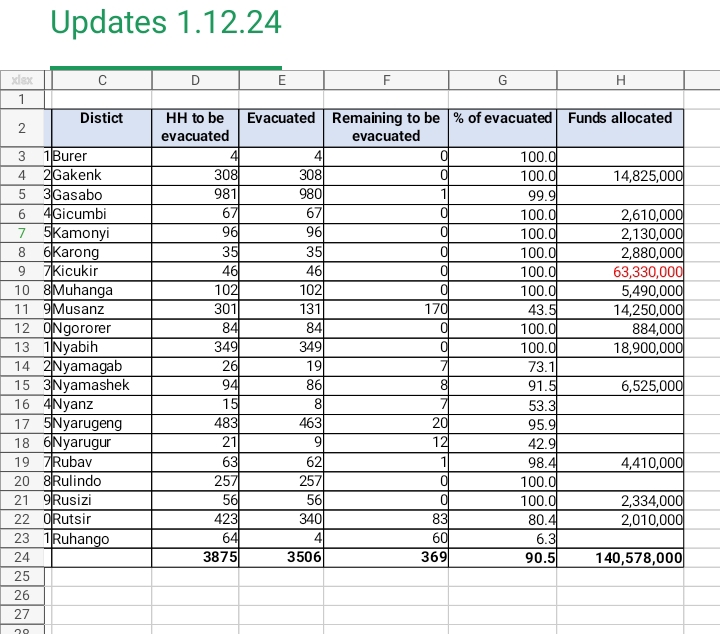
Relocation of citizens without compensation, due to disasters, was a trend in Africa in 2019-2020?
One of the trends observed in African cities that Rwanda followed in terms of not providing compensation to people displaced by disasters, was seen in countries like Mozambique, Senegal, Nigeria, Tanzania, Madagascar, Kenya, and others, where residents were forcibly relocated due to disasters such as floods, storms, toxic gases, or being located in low-lying areas.
In Beira, Mozambique, the city was hit by a cyclone named Idai in 2019, which caused severe flooding and displaced more than 100,000 people from their homes. The government did not provide compensation to those who were displaced.
Some tried to return to their areas, only to find that the government had classified the land as unsuitable for resettlement.
Additionally, between 2012 and 2020, in Dakar, Senegal, flooding occurred in the Pikine and Guédiawaye districts, where heavy rains destroyed the homes of citizens in areas surrounding the city.
In 2020, the government took action and ordered that some residents of poorly settled areas be relocated, but they received no financial compensation or assistance, forcing some to move to cheaper areas on the outskirts of the city where they created new slums, while others remain homeless.
In 2021, Lagos, Nigeria, was also hit by flooding in the Lekki and Bariga areas due to heavy rains and rising Atlantic Ocean waters, prompting the government to encourage people to move from certain areas of the city.
The residents of Lekki were forced out of their homes without any assistance, and the rising waters continued to erode their land. The government asked them to relocate far from the water’s edge but did not provide them with new housing.
Near Rwanda, in Dar es Salaam, Tanzania, flooding occurred in the Jangwani area in 2020, and again, there was insufficient support given to the displaced residents, leaving many without shelter, while others moved to unknown parts of the city, and the government was unable to track their whereabouts.
Source: Kigali Today
